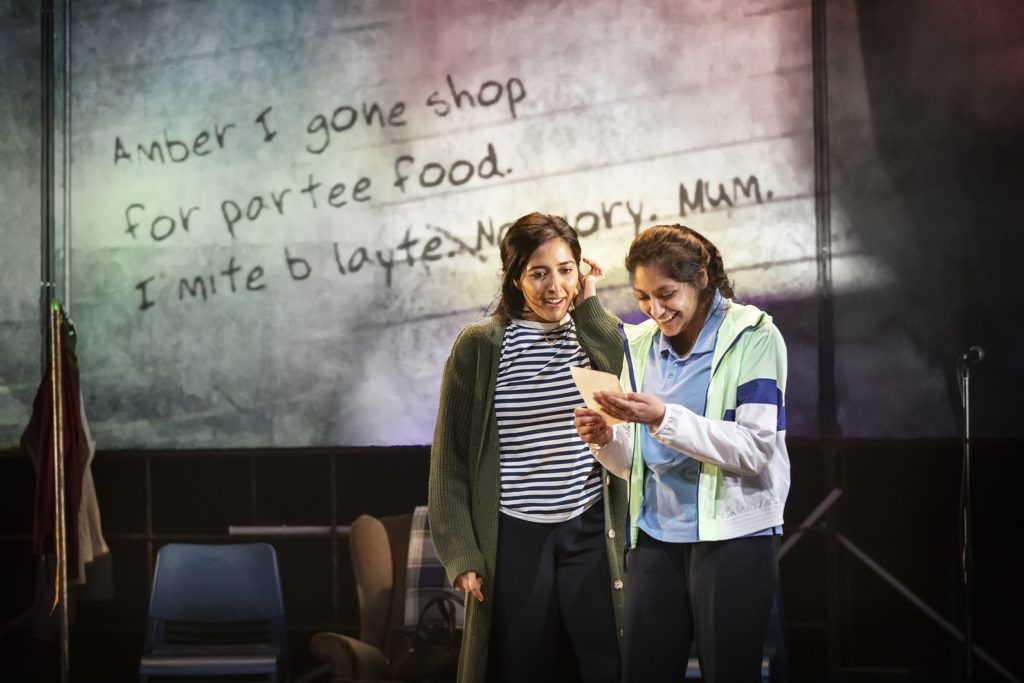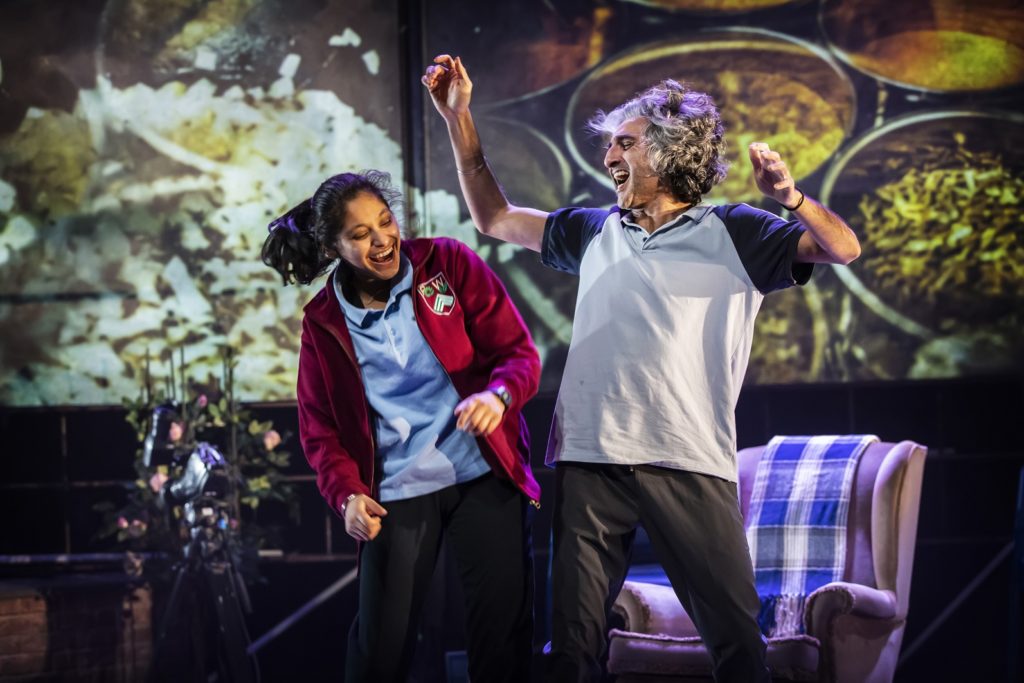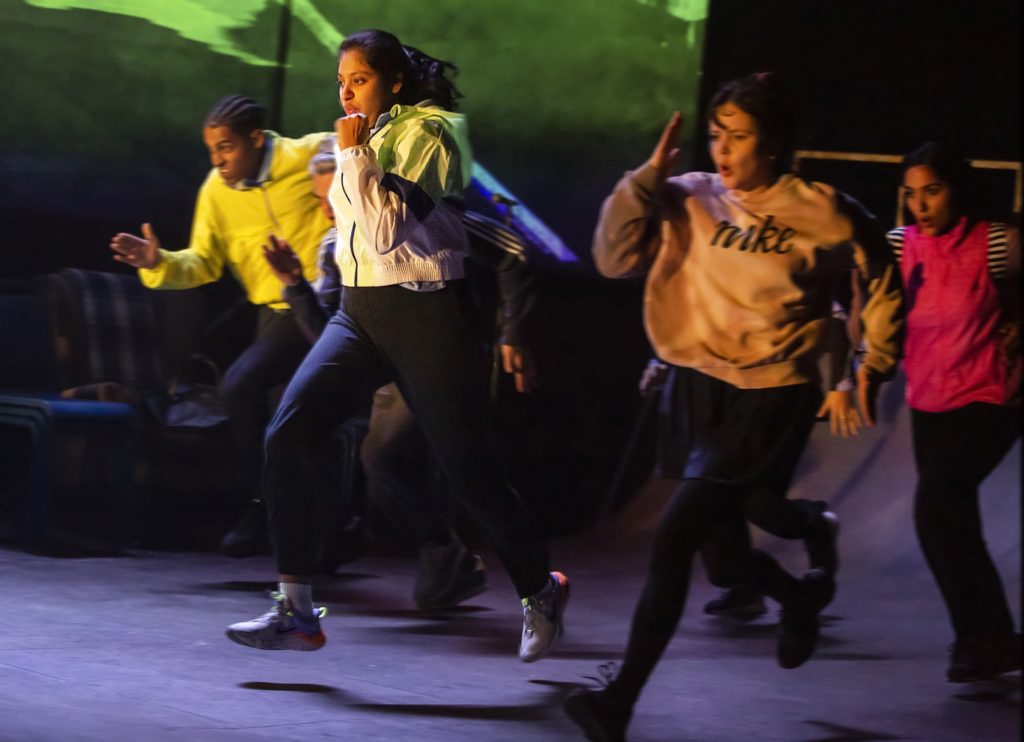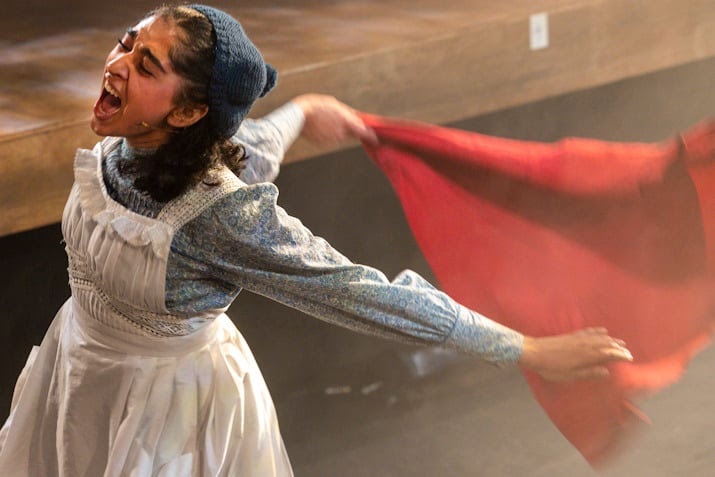
Farah Ashraf’s Roberta in the Bradford 2025 UK City of Culture revival of York Theatre Royal’s The Railway Children at Oxenhope Station. Picture: James Glossop
YORK Theatre Royal first staged The Railway Children in the purpose-built Signal Box Theatre at the National Railway Museum, York, in 2008 and 2009, later transferring to London’s Waterloo Station, Toronto in Canada and King’s Cross Theatre, London.
From this evening, York playwright Mike Kenny’s refreshed stage adaptation of E Nesbit’s novel is back on track in Yorkshire, as the Theatre Royal teams up with Keighley & Worth Valley Railway for Bradford 2025 UK City of Culture, in a revival of Damian Cruden’s Best Entertainment Olivier Award-winner.
All on board once more are the same director, writer, set and costume designer, Joanna Scotcher, lighting designer, Richard G Jones, composer, Christopher Madin, and sound designer, Craig Vear. “We’re all still here – somehow!” says Damian.
The setting is the railway line famously used as a location for Lionel Jeffries’ 1970 film, the one starring Jenny Agutter and Bernard Cribbins that transferred Nesbit’s rural setting from Kent to Yorkshire.
Audiences will begin by taking a steam train from Keighley to Oxenhope Station, a journey accompanied by an immersive scene-setting soundscape provided by Stand & Be Counted Theatre on the themes of exile, sanctuary, compassion and kindness.

Damian Cruden: Directing The Railway Children on the Keighley & Worth Valley Railway line. Picture copyright: The York Press
Kenny’s re-worked adaptation will be staged in an adapted engine shed at Oxenhope, a location closest in character to the National Railway Museum premiere with a steam train from the Keighley & Worth stock and the audience on either side of the railway track in the 500-capacity auditorium.
“It’s very similar to when we first did it inside a tent [over the freight depot] at the NRM, partly because it’s another heritage railway environment, whereas Waterloo and King’s Cross had a very different railway atmosphere. Seven hundred volunteers work for Keighley & Worth, which tells you something about our relationship with the steam age,” says Damian.
“We’re using what’s a sort-of museum shed [officially the Exhibition Shed], a proper period engine shed, where they keep the locomotives, and it’s customary to hold live events there [such as the October beer festival], but usually on a much smaller scale, so we’ve had to empty the shed of all its ‘bits’.
“The steam engine we’re using is a full locomotive with a tender, from the 1880s, along with a Third Class carriage and the ‘Gentleman’s Carriage’, shunted from further down the line.”
Damian is delighted to be staging arguably his biggest ever hit again. “Bringing The Railway Children to Bradford this year offered us a unique opportunity to restage the production as part of the UK City of Culture programme, starting on the tracks where the iconic 1970 film was shot in the beautiful Worth Valley.
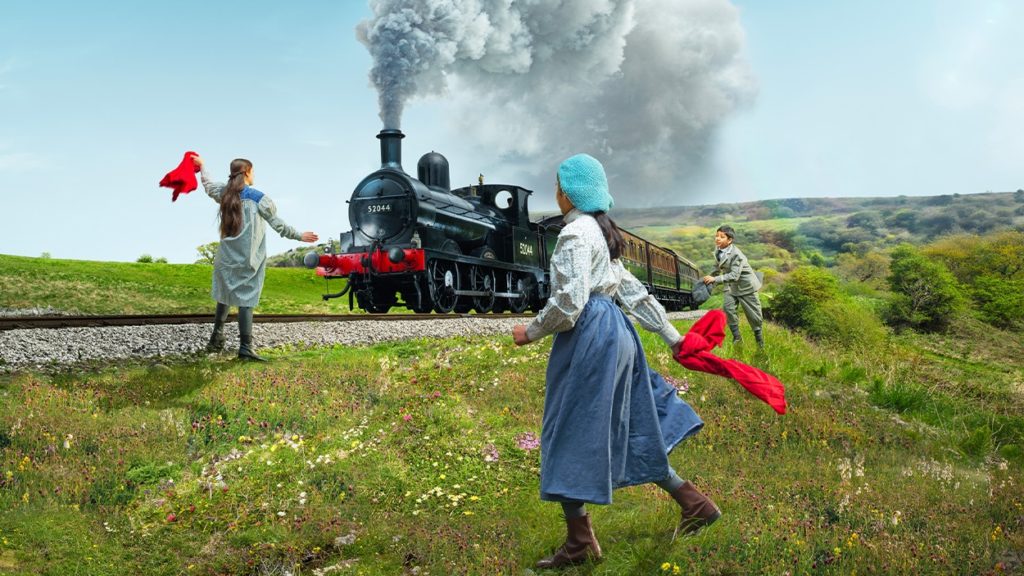
The poster for the Bradford 2025 UK City Of Culture production of The Railway Children
“It’s great that it’s part of the festival and that it’s coming to the point of origin, the railway line that goes through Oakworth station, the primary location in the film.”
Set in 1905, The Railway Children tells the story of three children forced to move from wealthy Edwardian London to rural Yorkshire after their father, an official in the Foreign Office, is imprisoned falsely on charges of espionage. Living in newly impoverished circumstances, they find adventure and hope on the railway that passes nearby.
“The reality is it’s a made-up story, a construct, set in the past, but very strongly as a metaphor of what a journey does, taking you from one way of being to another, while looking at the nature of being human and the benefit of integrating with others, so in some ways it’s a moral tale for today, showing us how we can be better as humans and how we can know ourselves better.
“It’s constructed as a mythical tale, but the fact is the train delivers things that are good and brings justice with it, in this case for the Russian political refugee Schepansky.”
In a significant adjustment by playwright Mike Kenny for the Bradford UK City of Culture production, the children and their mother will be a South Asian family, played by Farah Ashraf (Roberta), Raj Digva (Peter), Jessica Kaur (Phyllis) and Asha Kingsley, latterly seen as Surinder in York company Pilot Theatre’s Run Rebel. Father (Paul Hawkyard), high-ranking Foreign Office civil servant Charles Waterbury, met and married Mother while working in India, then brought up his family in London.
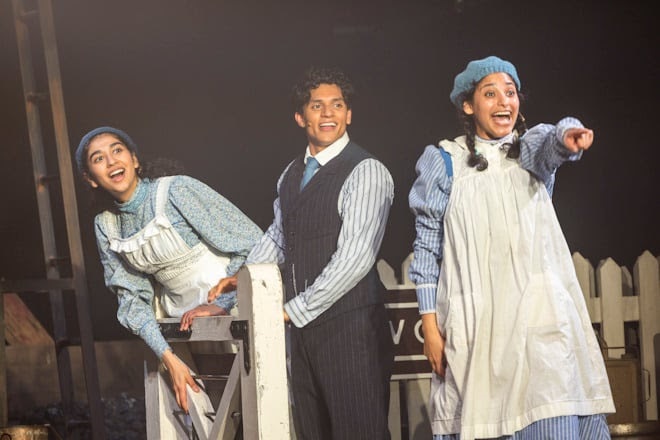
Farah Ashraf’s Roberta, Raj Digva’s Peter and Jessica Kaur’s Phyllis in a scene from The Railway Children at the gates of Oakworth Station. Picture: James Glossop
Damian notes the story’s resonance with Bradford’s own story: “Bradford is a wonderful example of a city that has welcomed people throughout its history, and this theme of welcome and global connection resonates through The Railway Children, which at its heart is brilliant family entertainment – a classic adventure yarn with a famously emotional ending,” he says.
“In so many ways, Bradford’s strength is the diversity of its community, so it felt important to have that as part of the story this time. Just as the notion of needing to find sanctuary as refugees is an important theme too, when so many people fit that description. It’s up to us to meet them and that need.
“That might be frightening at times…so it’s an interesting time in national and international history to bring the story back to the stage, with a huge amount of paranoia of strangers coming into people’s minds, as being something to be feared, but that fear does not match up to scrutiny.”
York Theatre Royal, Keighley & Worth Valley Railway and Bradford 2025 UK City Of Culture present The Railway Children, Keighley Station and Oxenhope Station, West Yorkshire, July 15 to September 7. Box office: https://bradford2025.co.uk/event/the-railway-children/.
Copyright of The York Press

